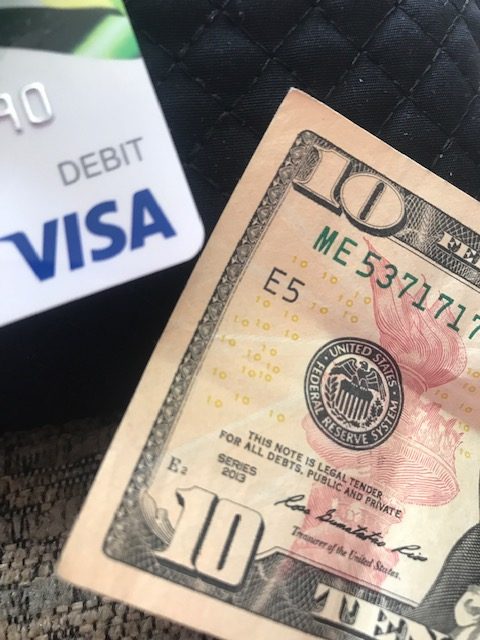Credit vs. Debit Cards: Which is Better?
March 16, 2021
Both credit and debit cards are a convenient way to purchase items in stores, and especially online. They are both cards that have a unique combination of numbers, and have an expiration date and a security code on the back. Although they both sound similar, there are some major differences between the two.
Simply put, a credit card allows the user to borrow money with the promise that they will pay it back at the end of the month. If a user does not pay the amount of money they borrowed back in full at the end of the month, then users will have credit card debt, and interest rates are typically high on that type of debt.
Credit cards also have a “credit limit,” which is the maximum amount of money that a credit card user is allowed to borrow within a month. Most people try to only use a small percentage of their credit limit, like less than 30%. When users use a large amount of their credit limit, it could be damaging to their credit score, because it shows untrustworthiness when users are close to maxing out their credit.
Credit cards are great for building up credit history, which will be important when it comes time to buy a home or car. A credit score is a number ranging from 300 to 850 that represents an individual’s creditworthiness. This number is composed of a user’s payment history, length of credit history, amount of money owed, etc.
A debit card, on the other hand, withdraws money directly from the user’s bank account. It is similar to the function of cash; once spent, it is immediately transferred to pay for the transaction. There is no risk of going into debt of having to pay interest, which is why debit cards are an appealing option.
One thing to keep in mind however, is that if a debit card user has less in their bank account than they want to spend, the purchase will be declined.
The primary reason some people choose credit cards over debit cards is to build up their credit history for when they are ready to make major purchases, and want to be trusted to pay back a loan. Others choose debit cards because they do not want to risk missing a credit card payment and having to pay high interest rates and fees, or going into too much debt.
Both debit and credit cards are great because they eliminate the need to carry large amounts of cash to make a purchase. They are also great for emergencies, because users will not have to worry about how much cash they have in the event it is needed.
If an individual is looking to get a credit card in their name, they must be at least 18 years or older. If someone under the age of 18 is looking to get a credit card, they have the option to become an authorized user on their parent’s credit. This means that they will be able to build credit history, but the account linked to the card is their parent or guardians.
Many people under age 18 opt for a debit card, and once they turn 18 sign up for a credit card. It is important to start building credit young, so the credit score will be positively impacted based on the length of one’s credit history.
Both options have pros and cons, and what age or stage of life an individual is in will influence which option is best for them. There are still a great extent of facts to be cognizant of before deciding to get a credit or debit card. It is recommended to do research so individuals will know exactly which is the best option for their needs.







